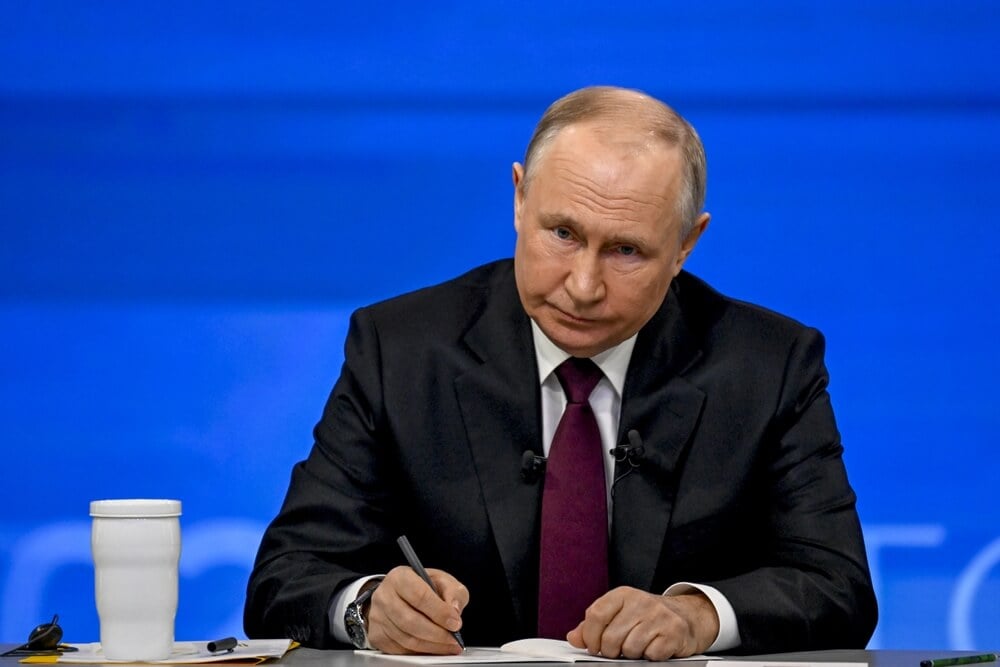The exclusion of Russia from the list of 180 countries on which the US has imposed higher import tariffs is one of the biggest of the many doubts following the decision made by President Donald Trump last Wednesday.
The White House responded briefly to the doubts that there are no higher tariffs because there is simply no trade with Russia. US sanctions already "preclude any meaningful trade", White House press secretary Caroline Leavitt told Axios.
She tried to back up her claim by saying that Trump’s new decisions on import tariffs do not affect Belarus, Cuba, or North Korea, which are also under heavy US sanctions.
However, this is just one of the inconsistencies causing confusion over Trump's latest decision, which has caused quite a shake-up in the global economy.
Quite simply, the US continues to trade with Russia, despite sanctions that have been tightening since 2014. The White House believes that this trade is no longer "meaningful", and in some ways it is correct.
Punishment without criteria
The volume of trade between the USA and Russia last year (USD 3.5 billion) is only a tenth of the exchange achieved in 2021, i.e., the year before the Russian aggression against Ukraine (around USD 35 billion).
However, Trump penalised many economies that have far less "meaningful" trade with the US than Russia does today with new, higher tariffs.
Iran, for example, received a 10% tariff on exports to the US, even though its exports to the US in 2024 were really "meaningful", namely only about USD 6.2 million. Incidentally, despite the long-standing strict sanctions, the US still exports to Iran, about USD 91 million last year.
The import size criterion for imposing higher tariffs is obviously not very convincing
Russia has somehow not received higher tariffs on exports to the US, even though it is about 560 times larger than Iranian exports to the US. The import size criterion for imposing higher tariffs is obviously not very convincing. An even less convincing criterion is whether an economy is under sanctions or not, as both Russia and Iran are under sanctions.
What has saved Moscow from being on the list of almost all the world's economies against which the US president wants to tighten trade policy?
Special treatment
One of the most influential Russian state TV channels, Rossiya 24, used the same argument as the White House press secretary – “It's simply because Western sanctions are already in place against our country."
However, Russia not only continues to trade with the USA despite the sanctions but also has a very positive balance sheet. Last year, Russian exports to the US totalled around USD 3 billion, while American exports were six times smaller, at just over USD 520 million.
This criterion suggests that Russia should be on the US's list of higher import tariffs, as one reason for their introduction is to reduce the US's foreign trade deficit with its partners.
The Kremlin-controlled media declare that the exclusion of Russia from the new US tariff system does not mean "special treatment"
While the Kremlin-controlled media emphatically declare that the exclusion of Russia from the new US tariff system does not mean "special treatment", the US president's decision leaves precisely this impression.
On the other hand, his recent announcement of a tightening of secondary sanctions through additional tariffs of 25% on countries that continue to import Russian oil appeared to be a serious threat to Moscow.
Bargaining chip
One of the reasons that Russia has avoided being on Trump's list of new import tariffs may lie in the nature of this decision, which was intended as a threat that would lead to quick trade negotiations, rather than a permanent measure.
The second reason cannot be separated from Trump's intention to reach comprehensive deals with Russia, which are primarily about reaching peace in Ukraine but would also include several economic aspects.
 Trump's soft treatment of Russia regarding import tariffs could be part of his negotiating strategy with the Kremlin, leaving room for a tougher approach if necessary - Vladimir Putin
Trump's soft treatment of Russia regarding import tariffs could be part of his negotiating strategy with the Kremlin, leaving room for a tougher approach if necessary - Vladimir Putin
In this context, it is significant that on the same day that the US president announced the long-awaited decision on tariffs, the economic adviser and one of the main negotiators with the US, Kirill Dimitriev, arrived in Washington, the first high-ranking official from Moscow since the start of the war in Ukraine.
It was Dimitriev who, since the start of the dialogue between the US and Russian administration over Ukraine, has advocated a thaw and the expansion of US-Russian trade relations as part of the overall negotiating package.
Trump's soft treatment of Russia regarding import tariffs could also be part of his negotiating strategy with the Kremlin, leaving room for negotiation and a tougher approach if necessary.
"If they (tariffs) are introduced now, what will they threaten in a week?" wrote Alexander Baunov, a senior fellow at the Carnegie Russia Eurasia Center.